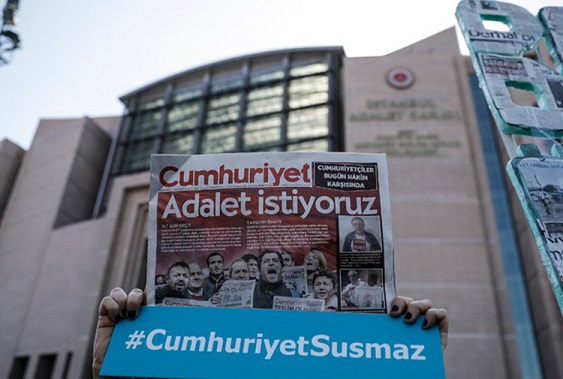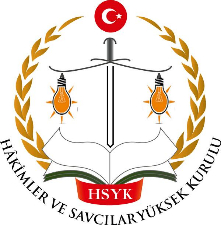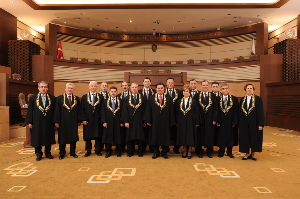Sounds, Silences and Turkey's Crumbling Core
By Gareth Jenkins
September 19, 2017
Since the failed coup of July 2016, Turkey’s spiralling descent ever deeper into authoritarianism has been characterized by arbitrary arrests and widespread abuses of even the draconian powers afforded the regime under the continuing State of Emergency. In addition, the government’s domination of the media has meant that, for the mass of the Turkish public, the reality of what is happening in the country is submerged beneath a cacophony of distortions, delusions, untruths and febrile conspiracy theories.

Narrative Veils: Erdogan, the AKP and the Gulenist Arrests
By Gareth Jenkins (vol. 7, no. 23 of the Turkey Analyst)
On December 14, 2014, the Turkish police staged early morning raids in 13 provinces across the country following the issuing of arrest warrants for 31 alleged members of the Gülen Movement on terrorism charges. Those detained included six journalists, prompting claims in the national and international media that the arrests were another example of President Recep Tayyip Erdoğan’s increasing suppression of freedom of expression. In fact, the narratives of the AKP and the Gülen Movement about the arrests are both attempts to coat a power struggle with the gloss of a commitment to principle.

Rebalancing the Scales: The Forthcoming HSYK Election
By Gareth Jenkins (vol. 7, no. 16 of the Turkey Analyst)
On October 12, 2014, Turkey’s judges and prosecutors will choose ten members of the Supreme Council of Judges and Prosecutors (HSYK) in an election which is likely to have far-reaching repercussions both for the government’s campaign against followers of the exiled Islamic preacher Fethullah Gülen and the broader issue of political control over the judiciary.

The Balyoz Retrial and the Changing Politics of Turkish Justice
By Gareth Jenkins (vol. 7, no. 12 of the Turkey Analyst)
On June 18, 2014, the Turkish Constitutional Court ordered a retrial in the infamous Balyoz, or “Sledgehammer”, case in which 237 serving and retired military personnel were convicted of plotting to stage a coup to overthrow the government of the Justice and Development Party (AKP). The retrial appears likely to result in the acquittal of the accused. However, the timing of the Constitutional Court’s decision has done little to allay concerns about the politicization of the Turkish judicial system.

What the Sledgehammer Sentences Mean
By Halil M. Karaveli (vol. 5, no. 18 of the Turkey Analyst)
The sentences in the Sledgehammer trial demonstrate the subjugation of the military to civilian, democratic, legal authority. But at the same time, it is not in the interest of the government of the Justice and Development Party (AKP) that the officer corps is further demoralized. Prime Minister Recep Tayyip Erdoğan no longer has an interest in wielding a sledgehammer against the military. The outcome of the trial of the generals must be viewed against the backdrop of the new power struggle that rages in Turkey, between the AKP and the movement of Fethullah Gülen.





